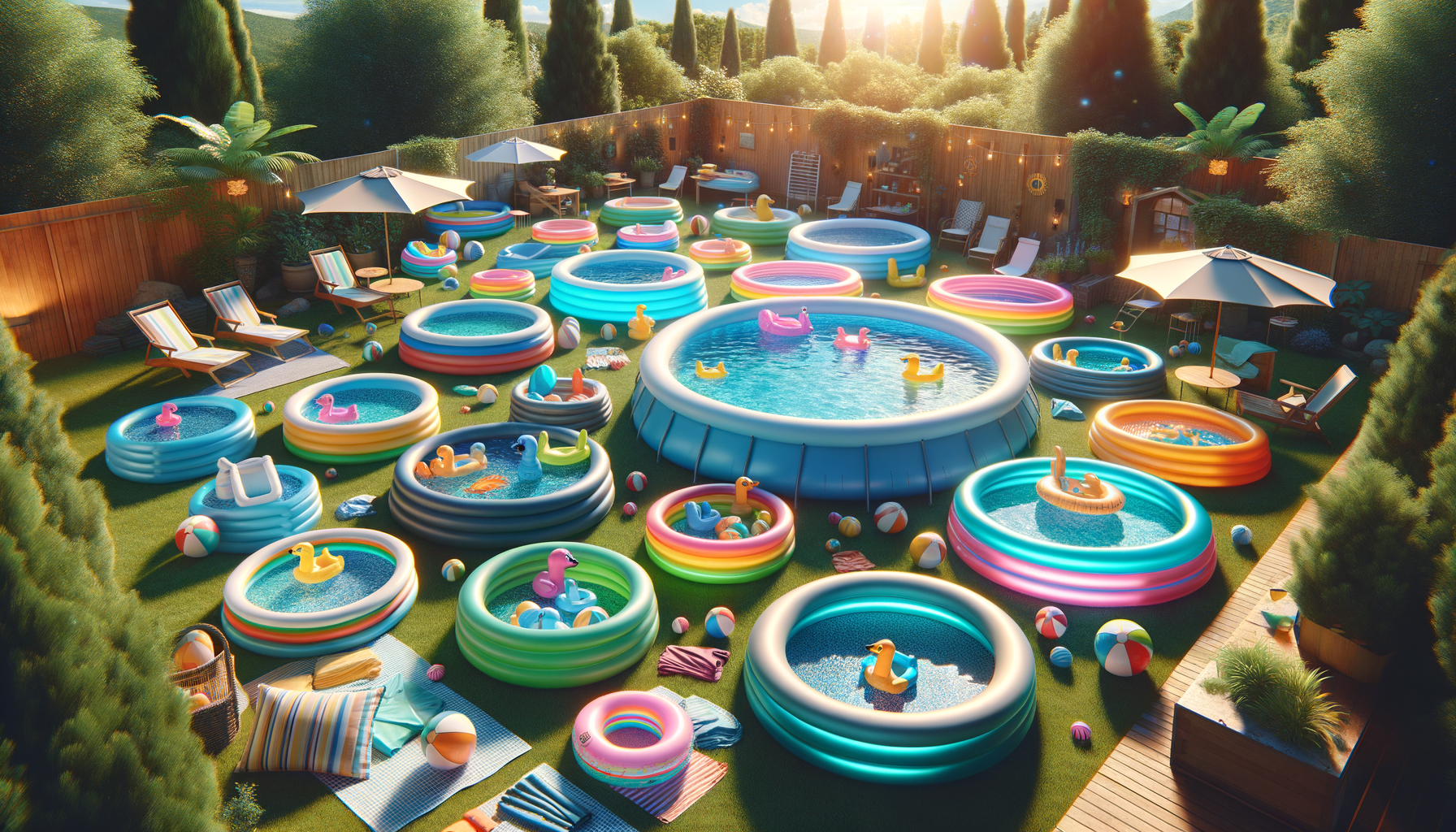Introduction to Inflatable Pools
Inflatable pools have become a popular addition to backyards across the globe, offering a practical and affordable solution for those seeking to enjoy water fun without the need for a permanent structure. As the summer months approach, many families look for ways to cool down and relax, and inflatable pools provide an excellent option. These pools are not only easy to set up but also versatile enough to fit various spaces, making them an attractive choice for many households.
With the ability to transform any outdoor area into a refreshing oasis, inflatable pools cater to both children and adults. Whether it’s a small kiddie pool for the little ones or a larger model for family gatherings, these pools offer endless possibilities for enjoyment. In this article, we explore the various aspects of inflatable pools, from their benefits and types to maintenance tips and safety considerations.
Benefits of Inflatable Pools
One of the primary benefits of inflatable pools is their affordability. Compared to permanent pools, inflatable options are significantly less expensive, allowing more families to enjoy the luxury of a pool without a substantial financial commitment. This affordability makes them accessible to a wider audience, providing a cost-effective way to enjoy water-based activities at home.
Another advantage is the ease of installation. Inflatable pools can be set up quickly and without the need for professional assistance. Most models come with a pump that makes inflation straightforward, and within a short time, the pool is ready for use. This convenience is particularly appealing to those who want a hassle-free experience without the complexities of traditional pool installation.
Additionally, inflatable pools are portable and versatile. They can be moved and stored easily, making them ideal for those who may not have a permanent space for a pool. This flexibility allows users to enjoy their pool in different locations, whether it’s the backyard, a patio, or even a camping site.
Types of Inflatable Pools
Inflatable pools come in a variety of shapes and sizes, catering to different needs and preferences. For families with young children, small kiddie pools are a popular choice. These pools are shallow and safe for young swimmers, providing a fun and secure environment for play.
For those seeking a more spacious option, larger family-sized inflatable pools are available. These models can accommodate multiple people and often come with additional features such as built-in seats or cup holders, enhancing the overall experience. Some even have separate sections for children and adults, ensuring everyone can enjoy the pool comfortably.
There are also specialized inflatable pools designed for specific purposes. For instance, some models are created with extra durability to withstand the rigors of frequent use, while others are designed with unique shapes or themes to appeal to children. With so many options available, there’s an inflatable pool to suit every family’s needs.
Maintenance and Care Tips
Proper maintenance is key to ensuring the longevity of an inflatable pool. Regular cleaning helps prevent the buildup of algae and bacteria, keeping the water safe and hygienic. It’s important to follow the manufacturer’s instructions regarding cleaning products and techniques to avoid damaging the pool material.
In addition to cleaning, it’s crucial to monitor the water’s chemical balance. Using appropriate pool chemicals can help maintain the right pH levels and prevent the growth of harmful microorganisms. Many inflatable pool owners find that investing in a simple water testing kit is beneficial for keeping the pool in optimal condition.
When not in use, inflatable pools should be deflated and stored properly to prevent damage. It’s advisable to dry the pool thoroughly before storage to avoid mold and mildew. By taking these steps, families can enjoy their inflatable pool for many seasons to come.
Safety Considerations
Safety is a paramount concern when it comes to inflatable pools, especially when children are involved. Supervision is essential at all times to prevent accidents and ensure a safe swimming environment. It’s also important to establish pool rules and ensure that all users are aware of them.
For added safety, consider using pool alarms or covers when the pool is not in use. These measures can help prevent unsupervised access and reduce the risk of accidents. Additionally, teaching children basic water safety skills can further enhance their safety around the pool.
By prioritizing safety and taking the necessary precautions, families can enjoy their inflatable pool with peace of mind, knowing that they have created a secure and enjoyable environment for everyone.




Leave a Reply